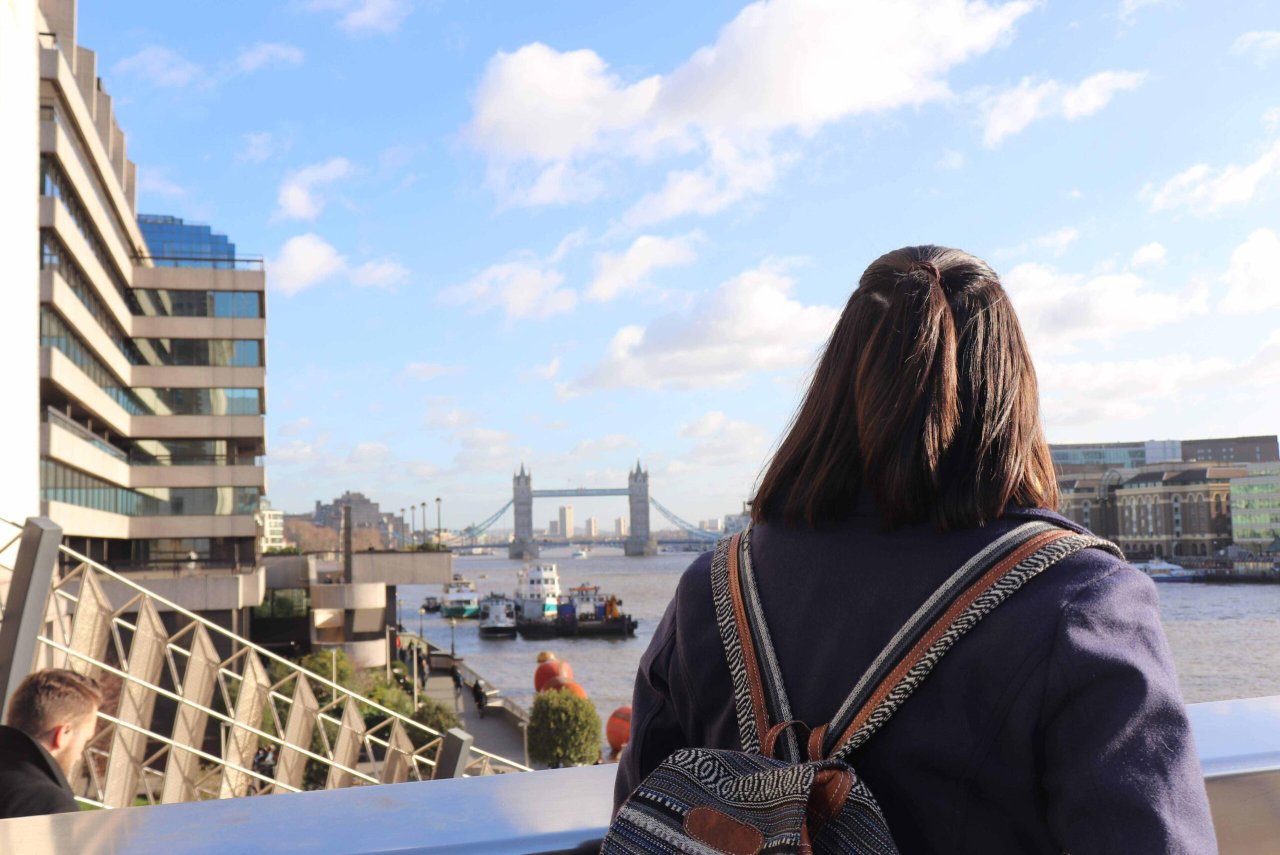From Everywhere and Nowhere: The Third Culture Kid
From my very first day at Arcadia, I learned the art of introducing myself: stating my name, major, where I’m from, and the good ole fun fact to top it off. I’ve gotten pretty good at introductions, except for one bit—I have no idea how to say where I’m from. I genuinely don’t know what to say without giving a life story crash course. So, allow me to fill you in.

Cherry blossoms in Tokyo.
I have a very international background, to say the least. I was born in California to two American parents. Just before I turned two, my family and I relocated to Tokyo, Japan for my father’s job, and I continued to live there until I was 16 and moved to Doylestown, Pa., where I live now.
It wasn’t like I’d never been to the States before. During summer holidays, my family and I would visit—most of my extended family lives in the States. And I did technically live here first, but I don’t remember any of it. As far as I was concerned, Tokyo was my home.
I’m a “third culture kid,” or a TCK. That means that I was raised in a culture other than that of the country on my passport. So, in my case, I’m not Japanese, but I grew up learning Japanese culture. I was born but not entirely raised American, especially since I went to international schools in Japan. I was surrounded by students and teachers alike from everywhere: My favorite teacher was from the U.K., one of my best friends was Lithuanian. The family I babysat for was from Thailand. Have you ever gotten a bunch of samples at an ice cream parlor? You just get a little taste of all sorts of flavors. International school is a bit like that—you get little tastes of the world.
What does ‘from’ even mean? Does it mean where I grew up? Or where I live? What my passport says?
I realized upon arriving here that even though my passport has only ever said that I’m American, I had no idea how to be an American. I’m American-born, but not American-raised like most of my friends here. I realized that I had no idea how to be “from” my own country. I felt like a foreigner in a country that was supposed to be my own, but I was a foreigner in Japan, too. The adjustment process from Tokyo to Doylestown was extremely difficult, and I’m still struggling three-and-a-half years later.
I feel as though I cannot claim full ownership of being from Japan or the States. I feel like I’m a foreigner no matter where I go, which is actually quite common for TCKs. This is why it’s so difficult to say where I’m from. What does “from” even mean? Does it mean where I grew up? Or where I live? What my passport says?

My view from London Bridge, on my second day in London.
I studied abroad in London through FYSAE, and I noticed something odd while I was there. I was warned by the Arcadia staff in London about homesickness and how hard it can hit you. I knew exactly what they were talking about, too, because I’d felt it when I moved to the States. I wasn’t looking forward to feeling like that again in England. But the homesickness never came. Ironically, going to London actually felt like coming home. I think being a TCK did give me quite an advantage here. Learning about and adapting to different cultures was normal for me, because I’d grown up around people from everywhere. In London, people are from everywhere, too. As the semester progressed, I felt less and less foreign. London felt more and more like home.
I know that my feelings and experiences aren’t common. Culture shock can be a lot to deal with. The way I experienced it is very unorthodox, but I do understand the struggle nonetheless. If you are considering studying abroad, I think there’s something important to keep in mind:
An open mind is the key to making the adjustment process as smooth as possible. One of my biggest pet peeves is when people say something from another culture is “weird,” because the way I’ve always seen it is that just because something is different, it doesn’t mean it’s weird. It’s just different, that’s all. Things won’t be the same as they are back home – and that’s okay. Find the fun in exploring and trying new things. It can be scary and intimidating, but the more you step outside your comfort zone, the more fun and fulfilling your time abroad will be. There’s so much to explore beyond our borders, so take advantage of any opportunities that come your way.



